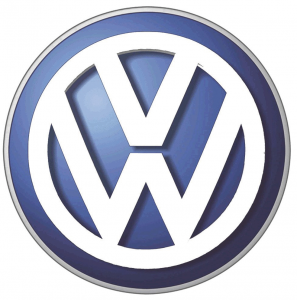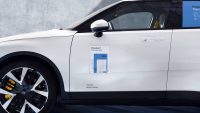WEEK by week, day by day, the emissions saga rumbles on, with petrol engines now also implicated in attempts to cheat the regulators. Oliver Harry takes a look at what we know… so far.
Q) So, one month has passed. Is the scandal still rumbling on?
A) You betcha, and it shows no signs of disappearing any time soon. There’s barely a day goes by without the German giant making headline news around the world.
Q) Was VW actually using the defeat devices in European emissions testing, then?
A) It was indeed. VW’s UK MD, Paul Willis, admitted as much to MPs during a select committee grilling on October 12. Willis handled the situation well, it must be said, and shed light on some pretty grey areas. He confirmed that 1.2 million cars had been affected on these shores, and he also acknowledged that VW had ‘mishandled’ the whole situation.
Q) 1.2 million? How on earth is VW going to fix them all?
A) Good question. Around 400,000 will need fuel injectors altering, as well as a software fix. The remaining number, made up of around 700,000 2.0-litre and 30,000 1.2-litre models, can be fixed with software alterations. It isn’t as drastic a change as feared, but the task ahead for VW UK is far from straightforward.
Q) It sounds promising, nonetheless. Surely a hardware change is needed, though?
A) Not according to Willis, who maintained that UK vehicles won’t need the hardware changes that will likely be applied to cars over in the US. Stateside vehicles will probably get a new urea tank, as part of an exhaust system overhaul. This is down to different regulations in the UK and US markets, apparently.
Q) Still, all these changes are bound to cost a bob or two…
A) You could say that. In fact, Volkswagen has admitted that it will cut spending by nearly £742 million to try to pay for it all. It sounds like a lot already but it’s bound to cost more. Much more. It’s going to have a big impact on future car development, that’s for sure.
Q) But the group must still have enough money in hand to cover the vast expenses?
A) Just about, we have been told, although the European Investment Bank, which has loaned Volkswagen some £3.4 billion since 1990, is threatening to withdraw its support. It has a point, perhaps, as the loaned money was (irony alert) intended for low-emission engine development, after all…
Q) So VW is beginning to react to the crisis constructively then?
A) Yes, although its slow reaction to the scandal didn’t go unnoticed by the parliamentary select committee. MPs questioned why it took so long for VW to take affected cars off sale, leaving customers to unknowingly buy them up.
Willis insisted it as logistically unavoidable. VW is a big machine with countless cogs, of course, and the long chain of command makes swift decisions difficult. But you can’t help but question why it hasn’t handled the situation as well as other giants have dealt with crises in the not-too-distant past. Toyota springs to mind…
Q) What will it do now, because surely no-one is going to buy a diesel VW any more?
A) Yes, it is pretty hard to see, isn’t it? VW much agree, because it has announced a cut back of diesels. It seems electricity is in and diesel is out at VW, with a huge refocusing towards EV powertrains.
We all thought the Phaeton would be the first to die in the name of a new era of frugality. Not a bit of it. In fact, it will be back as an electric, Tesla-rivalling flagship soon enough. VW is probably hoping it will distract people away from the here-and-now. That is, however, rather difficult to envisage.
Q) Interesting. So will VW begin repairing European cars from January onwards?
A) Er, not quite. Although VW has promised to begin fixing its cars from January, the German authorities rejected the plan. Instead, they issued a mandatory recall of 2.4 million cars.
It seems the German government is just as fed-up with VW’s slow response as the rest of us. Nevertheless, it’s pretty rare for it to be publicly snubbing VW, and demonstrates the government’s desire for some level of control over the deteriorating situation.
Q) Talking of governments, is this really the first that our government has heard of the emissions scandal?
A) This is where get even more interesting. It Appears that the government was warned about dodgy diesel emissions as far back as 2009 – at least according to an article in The Times.
Some clever bods from King’s College London and Leeds University found the NOx levels and particulate matter in London had risen by seven per cent in five years when they expected it to have fallen by 20 per cent. Something was clearly afoot.
Q) So the scientists tipped the government off?
A) That is what we are being led to believe. Their analysis was commissioned by the Department for the Environment, Food and Rural Affairs, after all. A similar warning was delivered in 2011, too. We don’t know precisely how much the government actually knew about the issue, but it must surely have had at least an inkling following the investigations.
Q) Well, at least we know exactly which cars have been affected now, right?
A) You’d think so, wouldn’t you? What with revelation after revelation erupting in the past few weeks, you might imagine that everything is now fully out in the open. It seems, though, that we were wrong. Instead of slowing down, it turns out that VW’s EA 189 engine might not be the only one tainted…
Q) But didn’t VW insist that EA 189 was the only engine with the defeat device?
A) It did indeed. But US regulators are now claiming that the group’s 3.0-litre diesel unit fitted between 2014 and 2016 has a defeat device. It potentially affects 10,000 VWs, Audis and Porsches. Yes, you read that right – Porsches.
The Stuttgart marque has been dragged right into the heart of the scandal. It also drops group chief executive Matthias Muller into fresh controversy – he was in charge of Porsche when the engines were fitted, after all. If anything is even remotely amiss, he will find himself right in the firing line.
Q) Is Porsche’s involvement for certain?
A) Not as of yet, with VW vehemently denying the accusation and Porsche claiming that it has been ‘surprised’ by the allegations. The investigation is ongoing, and as Car Dealer goes to press, we are not entirely certain what this will mean for the sports car firm.
What we do know is that as more and more cars are brought into the spotlight, VW’s reputation is sinking further and further. How can we trust a manufacturer that could still be lying to us after we believed it had revealed all? It really (and literally) can’t afford for any more vehicles to fall under further suspicion now.
Q) That’s shocking. Surely VW can’t be hiding anything else from us?
A) You’d have thought not, but it has been. Just when we thought that the Porsche implications were damning, it emerged that the scandal has spread – massively – and that now petrol engines are involved. VW admitted there were CO2 irregularities in its smaller- engined vehicles, with reports pointing towards the 1.4-litre four-cylinder petrol in particular.
The BlueMotion diesel is also implicated. This revelation is a game-changer, dragging millions of new car owners into the crisis and costing VW an estimated €2 billion (£1.4 million) on top of the €6.7 billion it has already set aside for scandal fire-fighting.
Q) CO2 irregularities? How does this affect VW vehicles?
A) VW released a statement admitting to finding irregular CO2 levels in 800,000 of its vehicles – and in conflict with the manufacturer’s certified figures. What is so bizarre is that the scandal has been based entirely around diesel NOx emissions so far. This massively widens the crisis, and affects cars from the VW, Audi, Skoda and Seat brands.
Specifically, this implicates small models, with hatchbacks such as the hugely popular VW Polo and Golf, Audi A1 and Skoda Fabia being likely suspects. As this issue concerns CO2 figures, which is linked to fuel consumption, the road tax on UK roads for affected vehicles will probably rise. This is where VW really has an issue. As of yet, affected motorists have not lost any money, but with potentially higher road tax, the likelihood is Volkswagen will have some seriously angry customers on its hands.
Q) So is VW still the only company caught cheating? Surely it can’t be alone…
A) The finger of suspicion has now been pointed at Vauxhall after a German environmental organisation claimed that the Zafira 1.6 CDTi emits 17 times the legal level of NOx under EU6 emission regulations. Vauxhall firmly denies the allegations though, and there has been no confirmation of any wrongdoing.
Q) Has VW’s reputation been heightened or worsened because of all this?
A) Without doubt, VW’s reputation has been indelibly tainted, not only by the cover-up but also by the way that it has handled the situation. Poorly, in a word. The company has been slow to react. By keeping company execs away from the limelight – apart from when they are forced to face the music (cue Paul Willis) – the firm has failed to convincingly reassure customers.
It’s a dangerous game to play, because with the world’s media focusing intensely on the crisis, rumours can quickly escalate. What’s more, with further vehicles now suspected of emissions cheating, and the CO2 revelation further damaging public goodwill towards the company, it raises the question – could Volkswagen be hiding anything else?
LOOKING AT THE ISSUE FROM THE DEALERS’ POINT OF VIEW
IT’S estimated that 1.1 million cars in the UK are affected by the rogue software that led to the emissions scandal. So far, the spotlight has been on the VW brand itself and the impact on consumers. But how is the issue affecting dealers?
Alison Loveday, managing partner at independent law firm berg, said: ‘We have experienced first-hand what happens when businesses which rely on large institutions are let down by them. It can be terrifying to consider challenging them, as we saw with small businesses and the banks, as the various banking scandals started to emerge.
‘Yet for dealerships and fleet managers, the impact of the VW scandal could be huge. There
will be a need to consider the impact on sales as the extent of the damage caused to the VW brand in the eyes of its customer base and supply chain becomes apparent.’
Customers are cancelling orders and this will not only affect the financial performance of individual dealerships, but also the target and bonus arrangements of employees.
The financial and contractual arrangements in place may need to be renegotiated and bank covenants reviewed. The financial agreements entered into by consumers may be affected by, for example, a drop in residual values and the calculation of balloon payments, which, in turn, may impact the dealers. What of those business owners who are awaiting a deferred payment arising from the sale of a VW dealership? This payment may become unobtainable through no fault of the previous or current owner.
Loveday added: ‘We recognise the need dealers will have to engage with effective advisers, who can take these issues up on their behalf, and have those difficult conversations if necessary, but ultimately seek to negotiate a meaningful way forward. It is essential that dealers are invited to express their views and concerns, and to communicate any information they have which, with hindsight, now appears to be relevant, and which may assist VW in pulling together its strategy to rebuild trust in the motor industry.’



































